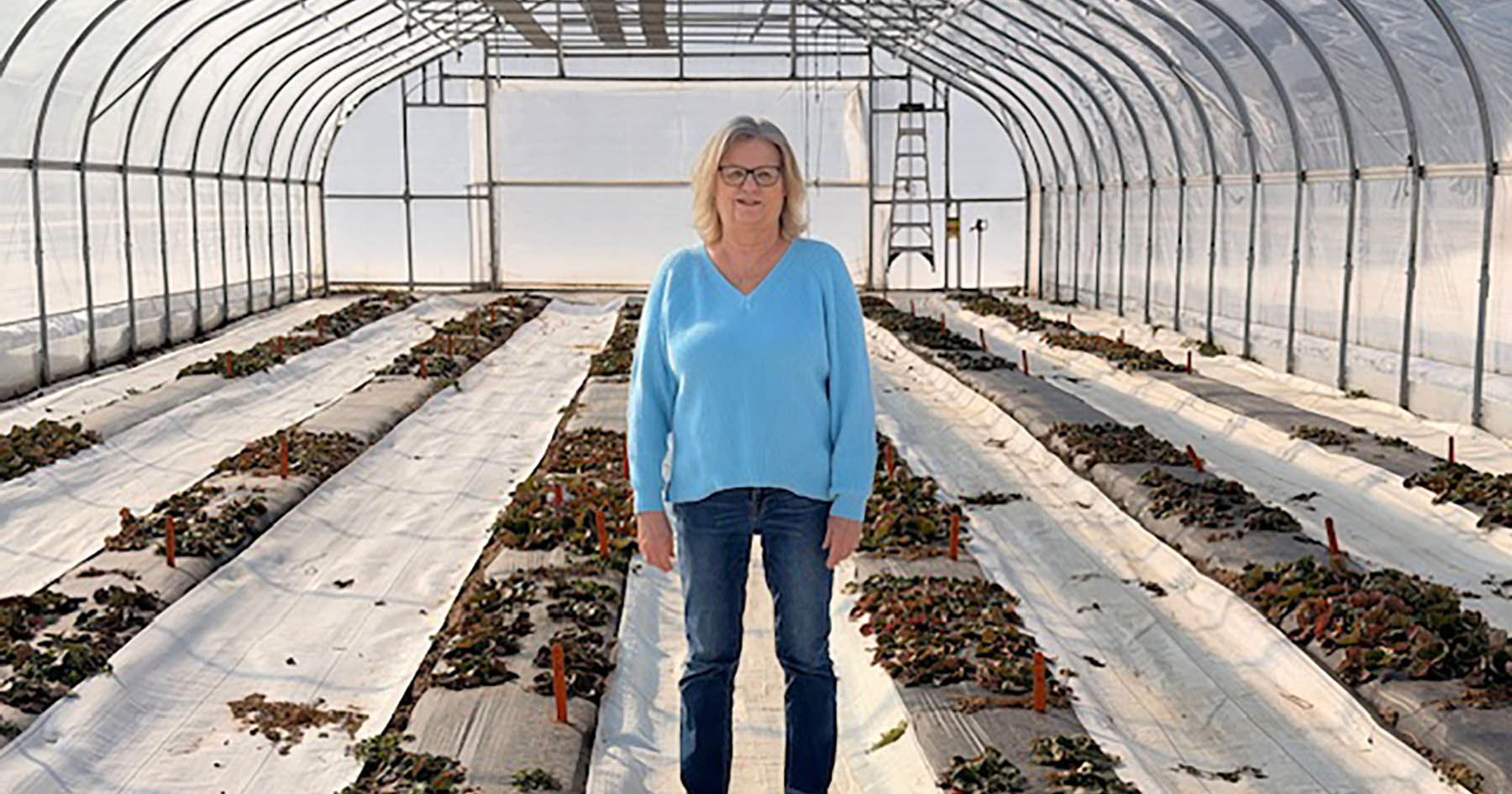Former Retail Manager Uses Purdue’s Agronomy e-Learning Classes to Help Her Manage Her Family’s Agricultural Construction Business
For Haley Rogers, working on a farm is second nature. She grew up around it – watching her grandfather and then her dad run Southwest Precision Ag, Inc., a family business that specializes in agricultural construction. For over 50 years, her family has been helping farmers and other agricultural professionals optimize their land, improve their yields, and find success in a challenging industry. According to Rogers, who describes her work as “moving dirt and building farms,” agricultural construction is difficult – but there’s also nothing like it.
“I knew how to drive a tractor before I could drive a car,” Rogers said. “I feel very comfortable in that environment, and it’s exciting – every day is a little bit different.”
Growing up the oldest of three girls, Rogers always hoped that she would take over the family business one day. But first, she wanted to amass the skills she would need to run the business successfully. Shortly after she graduated high school, she ended up getting a job in retail, where she quickly moved up the ranks towards management. Working as a retail manager taught Rogers how to prioritize customer service, a skill that would be essential when working with farmers.
“Working in retail taught me so much about people and how to work with them,” Rogers said. “In the agricultural construction business, those skills are really important, because you have to get to know the farmers and what they need.”
Rogers decided it was time for a career switch. Her dad, who was now in his 60s, had run Southwest Precision Ag, Inc. for a long time and was thinking about retirement. So, Rogers moved back to south Florida and started working full-time at her family’s company. Rogers fully immersed herself in this new role, learning the business from the inside out. She also started looking into educational opportunities that would teach her more about the field.
“I love to read and learn – and I really like being good at things,” Rogers said. “I wanted to get the best possible start in this business, and I knew taking some classes would help me do that.”
After some research, Rogers found Purdue University’s Agronomy e-Learning Academy, which offers three fully online courses in agronomy and precision agriculture. Rogers was interested in the program because Purdue has a strong reputation in agricultural sciences, and the classes were fully online, meaning she could continue working at the family business while completing her courses.
“I’m very busy in my career,” Rogers said. “I’m driving all the time to different farms, and this is a very hands-on business, so I don’t usually have time during the day to do coursework, and I don’t always have internet access. Purdue’s program had the flexibility I needed. I could stop and start classes whenever I wanted.”
In addition to flexibility, Rogers also wanted an online program that was practical and skills-based rather than theoretical. She learns best by doing, and, in her industry, lessons are most easily applied in the field. Purdue’s program focused on practical skills building and gave her the opportunity to speak and work with actual farmers outside of the classroom.
“The first couple of courses I took in the certificate program helped me a lot in learning the language that farmers speak so I could better understand their needs and concerns,” Rogers said. “Being knowledgeable about agronomy helps our business in so many ways – it helps us understand the land more, and how we can better optimize it for the needs of farmers.”
Rogers credits Sue Bennett, the program’s manager, with helping her get the most out of her online classes. When Rogers had to step away from her courses to focus more on her job and family, Bennett helped her reschedule, and made sure she could get back into the courses once she was ready to resume.
“I wanted to finish all three courses in the same year, but I ended up having an incredibly difficult year – just one obstacle after another,” Rogers said. “Sue kept working with me to make sure I could still finish the certificate on a timeline that made sense. She was so accommodating.”
Now that Rogers is finished with the certificate, she’s looking towards the future. She’s hoping to take over Southwest Precision Ag, Inc. in a few years after her dad officially retires. As a newly certified agronomy professional, she has big plans for the business including expanding services into agronomy consultation, a change that she hopes will offer even more value to farmers.
“In this business, we help farmers with so many different things – from precision grading the land, to clearing it, to building it back up,” Rogers said. “Having good working knowledge of agronomy helps with every step of the process.”
Reflecting on her journey from working in retail management to taking over an agricultural construction company, Rogers hopes that her experience can be an inspiration to others who want to get into agricultural fields, especially young women, who are still significantly underrepresented in agricultural careers.
“Agriculture is still a boys’ club in some ways,” Rogers said. “As a woman in this field, you’ll meet people who don’t take you seriously, or who assume that you don’t know how to get your hands dirty. You’ll get underestimated.”
Even in the face of adversity, Rogers believes that young women should not be discouraged from pursuing agricultural careers. In fact, young women play a pivotal role in changing the culture of agriculture – and making it a more equitable career for everyone.
“My advice to women entering the field is this: every time someone doubts you, remember that it’s an opportunity to prove yourself,” Rogers said. “Take that doubt and turn it into motivation to do a damn good job.”





